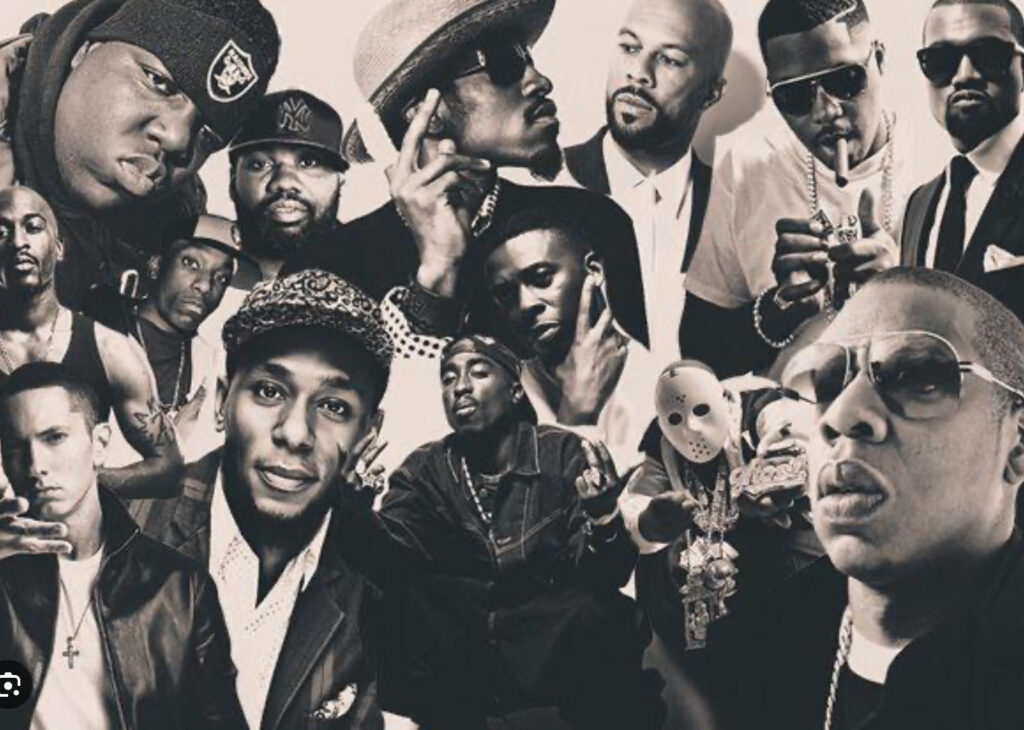The debate over the Top 3 Rappers of All Time is one of the most passionate and ongoing discussions in hip-hop culture. Fans, artists, and critics alike often find themselves engaging in heated conversations about who deserves a spot on this exclusive list. But what drives this trend? Why do people feel compelled to rank their favorite rappers in a hierarchy rather than simply appreciating them for their unique contributions?
At its core, the concept of a “Top 3” is more than just a subjective list—it is a reflection of personal identity, cultural influence, and the human tendency to categorize greatness. However, does this ranking system truly enhance the appreciation of hip-hop, or does it limit the art form by reducing it to a competitive contest? Would it be better to abandon rankings altogether and embrace individual preferences over collective agreement?
Why Do Fans Feel the Need to Rank Rappers?
Hip-hop, more than any other genre, thrives on competition and legacy. From its early days in battles and cyphers to mainstream award shows and chart dominance, the idea of being “the best” has always been embedded in its culture. But why do fans feel the need to rank their favorite artists?
The Competitive Nature of Hip-Hop
Rap was born from battle culture, where MCs competed through lyrical ability, wordplay, and stage presence. This competitive spirit evolved beyond battles and into album sales, Grammy wins, and commercial success. The concept of having a “Top 3” plays into this mentality—fans want to validate their favorite artists in the grand arena of hip-hop history.
Personal Identity & Cultural Influence
Music is deeply personal, and our favorite rappers often reflect our own identities, experiences, and values. Fans choose their Top 3 based on who resonates most with them, whether it’s through lyricism, storytelling, or emotional connection. A fan who grew up in the golden era might list Tupac, Nas, and Biggie, while someone influenced by modern hip-hop might pick Kendrick Lamar, J. Cole, and Drake.
The Need for Certainty & Order
Psychologically, humans have an innate desire to categorize and structure things, including music. The “Top 3” concept provides a sense of order and clarity, making it easier to process and compare artists rather than appreciating them all equally. It simplifies the vast landscape of hip-hop into a manageable and debatable structure.
Social Validation & Tribalism
Hip-hop debates are often tribal, with fans fiercely defending their choices. Choosing a Top 3 becomes an extension of belonging to a cultural movement. Whether it’s the loyalty of Eminem’s fanbase or the unwavering support for Jay-Z, the discussion fosters camaraderie, debate, and rivalry—all elements that make hip-hop culture so engaging.
The Criteria: What Do Fans Rely On When Choosing Their Top 3?
While personal bias plays a role, most fans rely on certain metrics to determine their rankings. These factors often shape the ongoing debate:
Lyrical Ability & Wordplay
Some fans prioritize technical skill, focusing on artists who showcase intricate rhyme schemes, metaphors, and storytelling. Rappers like Black Thought, Rakim, and MF DOOM are revered in this category.
Impression & Influence
Others consider how much an artist has influenced hip-hop culture and future generations. For example, Tupac’s activism, Jay-Z’s business acumen, and Lil Wayne’s impression on modern rap aesthetics have cemented their legacies.
Discography & Consistency
A great artist is not defined by one album but by a body of work. Fans consider the number of classic albums, longevity, and artistic growth. Nas’ transition from Illmatic to King’s Disease or Kanye West’s evolution from The College Dropout to Yeezus showcases sustained greatness.
Emotional Connection & Subject Matter
For many, it’s not about skill or sales—it’s about how a rapper makes them feel. Artists like Kid Cudi, DMX, and J. Cole resonate deeply with fans due to their raw emotional expression.
The Downside of Having a “Top 3” Mindset
It Creates an Egocentric Complex
The act of ranking rappers often fosters an egocentric mindset, where fans feel their choices are the definitive truth. It leads to gatekeeping, where older fans dismiss new artists, and younger fans ignore pioneers of the genre.
It Reduces Art to a Competition
Hip-hop is an art form, and art is subjective. Ranking artists enforces a winner-loser mentality rather than celebrating diverse styles and voices. Instead of appreciating MF DOOM’s lyricism, Kendrick’s storytelling, and Future’s melodic mastery equally, people feel forced to pick a hierarchy.
It Limits Musical Exploration
When fans focus only on “GOAT” discussions, they often overlook underground and emerging artists who are equally talented. Constantly debating between Jay-Z, Nas, and Biggie might prevent someone from discovering newer talents like Mick Jenkins, Denzel Curry, or Rapsody.
It Forces an Unrealistic Comparison Between Eras
Ranking rappers across generations is difficult because hip-hop is an evolving genre. Comparing Biggie to Kendrick Lamar or Rakim to J. Cole ignores the different landscapes in which these artists thrived. Shouldn’t each era have its own Top 3?
A Better Alternative: Personal Appreciation Over Rankings
Rather than focusing on an objective “Top 3”, fans should embrace hip-hop in a more fluid and personal way. Instead of debating who is “better,” why not appreciate how different artists contribute to the culture?
Categorization Over Ranking
Instead of ranking a strict Top 3, fans could break it down into categories:
•Best Lyricists: Nas, Black Thought, Lupe Fiasco
•Most Influential: Tupac, Jay-Z, Kanye West
•Best Storytellers: Kendrick Lamar, Slick Rick, J. Cole
•Best Melodic Rappers: Drake, Future, Young Thug
This method allows for greater appreciation of different rap styles.
Mood-Based Appreciation
Music is emotional. Instead of a rigid Top 3, fans could ask:
•Who do I listen to when I need motivation? (E.g., Nipsey Hussle, Jay-Z)
•Who do I play when I’m feeling introspective? (E.g., Earl Sweatshirt, J. Cole)
•Who hypes me up at the gym? (E.g., DMX, Meek Mill)
By embracing music in different contexts, fans can enjoy the diversity of hip-hop without the constraints of ranking.
Focusing on Personal Connection Over Status
Rather than debating who’s the best, fans should focus on why an artist means something to them. Whether it’s Kendrick’s political messages, Kid Cudi’s emotional depth, or Lil Wayne’s relentless creativity, music should be personal, not competitive.
Impression
The concept of a Top 3 Rappers of All Time is deeply embedded in hip-hop culture. While it fuels discussion and engagement, it can also create division, limit exploration, and reduce music to a contest. Instead of focusing on strict rankings, fans should embrace hip-hop’s diversity—appreciating artists based on mood, style, and personal impact rather than a rigid hierarchy.
At the end of the day, hip-hop is about expression, connection, and evolution—and perhaps that’s something that can’t be ranked at all.
No comments yet.







